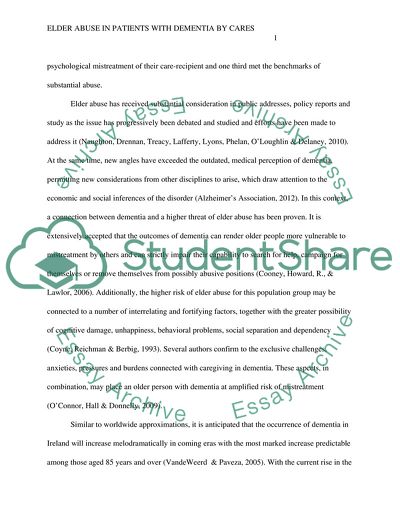Cite this document
(“Elder Abuse In Patients With Dementia By Cares Dissertation”, n.d.)
Elder Abuse In Patients With Dementia By Cares Dissertation. Retrieved from https://studentshare.org/health-sciences-medicine/1677499-elder-abuse-by-the-carers-in-people-with-dementia-living-in-community-a-systemetic-review-with-legal-and-ethical-implications
Elder Abuse In Patients With Dementia By Cares Dissertation. Retrieved from https://studentshare.org/health-sciences-medicine/1677499-elder-abuse-by-the-carers-in-people-with-dementia-living-in-community-a-systemetic-review-with-legal-and-ethical-implications
(Elder Abuse In Patients With Dementia By Cares Dissertation)
Elder Abuse In Patients With Dementia By Cares Dissertation. https://studentshare.org/health-sciences-medicine/1677499-elder-abuse-by-the-carers-in-people-with-dementia-living-in-community-a-systemetic-review-with-legal-and-ethical-implications.
Elder Abuse In Patients With Dementia By Cares Dissertation. https://studentshare.org/health-sciences-medicine/1677499-elder-abuse-by-the-carers-in-people-with-dementia-living-in-community-a-systemetic-review-with-legal-and-ethical-implications.
“Elder Abuse In Patients With Dementia By Cares Dissertation”, n.d. https://studentshare.org/health-sciences-medicine/1677499-elder-abuse-by-the-carers-in-people-with-dementia-living-in-community-a-systemetic-review-with-legal-and-ethical-implications.


